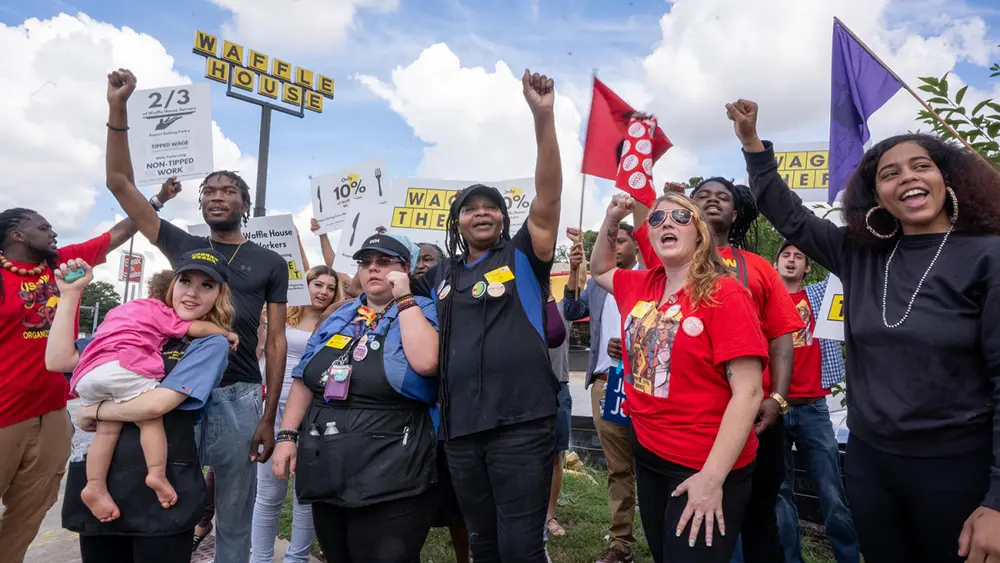On the morning of Thursday, September 19, workers from various Waffle House locations across Georgia gathered at a branch in Morrow to protest against rampant wage theft. These employees came together to voice their frustrations over a persistent issue affecting countless workers across the company.
A recent survey conducted by the Strategic Organizing Center revealed alarming statistics: 90% of the Waffle House employees surveyed admitted to experiencing some form of wage theft over the past year. Even more concerning, 77% reported encountering multiple types of wage theft, and nearly half—49%—experienced two or more instances of this illegal practice.
The details are disturbing:
75% of workers reported being forced to perform job duties either before clocking in or after clocking out.
Another 72% shared that they had not been compensated for all the hours worked or for specific tasks completed.
Meanwhile, 58% said they were paid the lower tipped wage for tasks that did not yield tips, and 21% disclosed that they had worked over 40 hours per week without receiving the appropriate overtime pay.
This protest occurred shortly after the Union of Southern Service Workers (USSW) filed a formal complaint with the U.S. Department of Labor. The USSW, which aims to organize low-wage workers across the Southern U.S., particularly within Waffle House, accused the company of engaging in widespread wage theft. One of the key allegations is that Waffle House regularly fails to pay servers the federal minimum wage when they are assigned non-tipped duties, such as cooking or deep cleaning.
Wage theft remains the most widespread form of theft in the United States, outstripping all other types of theft.
According to data from the Economic Policy Institute, workers lose as much as USD 50 billion each year due to wage theft—far more than the total value of thefts from robberies, burglaries, and vehicle thefts combined, based on FBI statistics from 2019. Yet, despite its scale, wage theft is rarely discussed in mainstream media, and those who steal from workers are seldom held accountable.
State labor departments frequently side with employers, and CBS News reported that, of 650,000 wage theft complaints reviewed, workers only won about half of the time. Even when they did win, over one-third of those workers never received their stolen wages.
In addition to demanding fair wages, Waffle House workers have raised concerns about safety issues, particularly regarding violence in the workplace. Videos of violent altercations at Waffle House locations have gained significant attention on social media, and employees say their employer is failing to protect them from both aggressive customers and natural disasters. Another issue raised is the company’s practice of deducting a “meal credit” from workers’ pay, even when they do not consume the meal provided. The employees are calling for an end to this deduction, alongside their demand for a living wage of USD 25 per hour.
Recently, Waffle House workers secured a notable pay increase, which the company referred to as the „single largest additional investment in our workforce in the entire 68-year history.” However, employees believe that this raise was not a result of corporate generosity but rather their collective efforts to organize and push for change. Despite this victory, workers argue that the raises fall short of their demands for a USD 25 hourly wage, especially considering that the company’s tipped wage for servers can be as low as USD 3 per hour.
